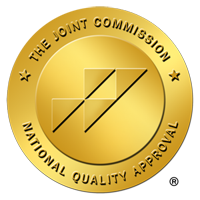If you or someone close to you has experienced trauma, getting the right type of treatment is essential. That trauma, if left untreated, can lead to secondary mental health disorders like depression or anxiety as well as substance abuse. But with the right kind of care, you can find coping mechanisms to take back control.
What is Trauma-Informed Care?
Trauma-informed care is a unique form of treatment for anyone who has experienced significant trauma. This can be applied to mental health and substance abuse treatment plans as well as an array of common psychotherapies. The idea behind trauma-informed care is that the approach toward treatment is done with more care and concern toward triggers in order to avoid causing retraumatization.
Retraumatization is a process whereby an individual tries to get help, but the help itself becomes a source of triggers, making things worse. The right type of trauma-informed care will avoid this.
The people with whom you work will ensure that you have more say in your treatment plan and that certain measures are employed, like using career-specific treatment programs, so that people like veterans or First Responders who have dealt with unique traumas can participate in individual or group therapy sessions with people who understand those unique traumas and have gone through similar issues.
What to Expect from Trauma-Informed Care
When you work with a trauma-informed care treatment center, one of the main things you can expect is significantly more involvement in your treatment plan.
This involvement can include decision-making regarding the plan you are given, as well as things like:
- Who your therapists are
- Whether there are phrases or triggers you need to avoid at the start
- What type of therapy you are most comfortable with
In addition to a higher level of involvement, you can expect to be consulted about certain decisions related to your care, taking into consideration any history of specific trauma and how that is most safely dealt with.
Common Therapies Used
When dealing with trauma beyond the initial experience or exposure, you might participate in one of several common therapies as part of your trauma-informed care. These therapies are there to help you gain:
- Safety
- Trust
- Power
- Control
- Esteem
- Intimacy
Cognitive behavioral therapies are the most widely used. These incorporate the idea that your thoughts or cognitions help find a balance between your situation and your responses to it. Behavioral changes can help you alter preconceived views of yourself, others, or situations and, as a result, provide coping mechanisms for changing some of the thoughts that may have stemmed from trauma.
EMDR is another popular therapy. This is the most heavily endorsed treatment for things like PTSD, as indicated by the US Department of Veterans Affairs and the World Health Organization. This type of treatment involves concentrating on your:
- Past memories
- Present disturbances
- Future actions
During treatment, you can expect to work through eight phases, revisited where appropriate.
Holistic Measures
In addition to common therapies, you might find that your trauma-informed care involves holistic measures, including:
- Breathing strategies
- Relaxation exercises
- Biofeedback
Breathing exercises, for example, can focus or control your breathing to reduce arousal, which can happen when you experience a trigger. Biofeedback can utilize things like muscle relaxation to help control your heart rate and reduce stress and anxiety when triggered. Relaxation exercises can encourage you to control your physiological anxiety responses to stimuli or triggers, helping you gain more control.
Finding Trauma-Informed Care with American Detox
With American Detox, you can get trauma-informed care with our trusted drug rehab for veterans. We work hard to ensure that all treatment programs take into consideration the type of trauma with which you have struggled. This is done to help create a safe, supportive space for your ongoing care where you have limited risks of re-traumatization.
At our treatment center, we prioritize your well-being with detox and residential programs that use evidence-based practices. During your stay, you will participate in individual and group therapy and work through the top levels of care on your way to recovery.
Overall, trauma-informed care is a form of treatment for substance abuse or co-occurring disorders that provides more control for clients and approaches care from the standpoint of avoiding re-traumatization. With the right program, you can get help for your underlying symptoms of things like PTSD or untreated trauma at the same time as your addiction.



